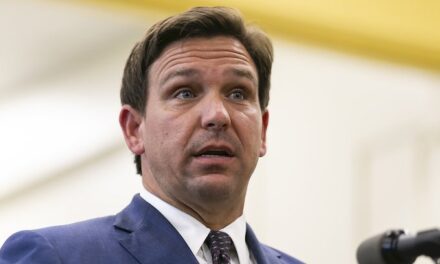As surely as the path to hell is paved with good intentions, the slide to the Russia-Ukraine conflict was greased with specious promises of the green lobby.
“A year ago, Ukraine’s fate was sealed, and that’s because (President Biden) gave up our energy-exporting business and allowed the Russians” to take it, said former U.S. Deputy National Security Advisor K.T. McFarland. Biden’s policy blunder enriched Russia with revenues from oil and gas and made both Europe and the U.S. more dependent on foreign sources.
Canceled by Biden to satiate the thirst of environmental extremists for a hydrocarbon scalp, the Keystone XL Pipeline project alone would have supplied more oil to the U.S. than currently provided by Russia. Adding to the damage have been administration moves to discourage or ban other projects for producing and transporting energy.
The Russian aggression itself has exacerbated energy markets already distorted by ill-advised, forced replacement of fossil-fuel and nuclear power plants with expensive and unreliable solar and wind sources. News of sanctions against Russian financial structures, concerns about supply disruptions, and Biden’s threats to target Russian infrastructure all have led to market uncertainty.
Crude oil breached the $105 per barrel mark after eight long years and is likely to increase further. With Russia supplying 21 percent of U.S. gasoline imports in 2021, there is upward pressure on already high gas prices.
The green agenda of European politicians — in place longer than Biden’s — has led to fracking bans, closing of nuclear and coal plants and overreliance on wind. High energy prices and electricity shortages have ensued. Countries face possible price hikes and disruption of gas supplies.
The negative effects of more expensive crude oil on both fuel and commodity prices will be worse in developing economies.
In India, where I live, high fuel prices have hurt millions of households since 2020. The government intervened this year to reduce prices of oil and gas, but there appears to be little more that can be done in coming months. Higher cost for fertilizer is expected to be especially problematic for India’s predominantly agrarian economy.
The situation for Africa is even more precarious. With much of the continent still without access to electricity, oil and gas are critical energy sources for the world’s poorest. A sharp and sudden rise in oil and gas prices will be devastating to the marginalized, who have little ability to adjust.
Nigeria — one of the fastest growing economies in Africa and the largest — imports all its gasoline and sells it to its citizens at a highly subsidized rate. Over the last five years, the cost of the subsidy increased by 890 percent, contributing to a 960 billion-naira ($2.3 billion) loss of revenue to the government in 2021 alone.
These are just a few examples of instability in energy markets. Much of it could have been minimized — perhaps avoided altogether — if nations had not been lured into the climate agenda with foolish visions of a “carbon-free” utopia.
“Energy security is tied directly to national security, regional security, global security,” said none other than U.S. Secretary of State Antony Blinken in a Feb. 7 appearance with a European Union representative. “When Russia halted gas supplies to Europe over a dispute with Ukraine in 2009, people died from the cold.”
Now, just a few weeks later, we wonder whether Secretary Blinken is advising his boss to abandon “woke” energy for realistic endeavors like pipeline construction and development of fossil-fuel and nuclear resources?
Vijay Jayaraj is a Research Associate at the CO2 Coalition, Arlington, Va., and holds a Master’s degree in environmental sciences from the University of East Anglia, England. He resides in Bengaluru, India.
© Copyright 2022 HUMAN EVENTS. All Rights Reserved.
—-
This content is published through a licensing agreement with Acquire Media using its NewsEdge technology.


















During the Revolutionary war, Washington longed for the French to come in with Military aid instead of just arms, military advisors and supplies. When they did, Britain who was the Russian premier military of its day crumbled. Since when do Americas act like Frenchmen when it comes to waging war? If Biden made decisions in WWII we would all be speaking German. The sooner we get in this game, the more allies we will keep from getting steamrolled by the Russians who will never stop short of world conquest.
It’s time America made war on the environMENTAL American Jolly green Giant of American energy destruction, fresh grown from the minds of Russian American environmental concocted energy destroying policies, beginning with that Little Green Spud of a President Joe Biden and his son Hunter who spend more time with the Ho Ho Hoes, than looking after American interests in Ukrainian and Russian oil deals.
inluminatuo, Great commentary! You hit the nail on the head. Biden and the communist Democrats would have enriched Hitler and the Japanese and Biden would have destroyed our military, so that the Nazis and the Japanese would have taken over our Country.
ITS often made me scratch my head, with nutjobs like this, who think ONLY AMERICA produces greenhouse gases.. WHAT DO RUSSIAN OIL RIGS not produce any?
the green movement is the new red communist party.
In other words, the ENTIRE BLOODY DNC.